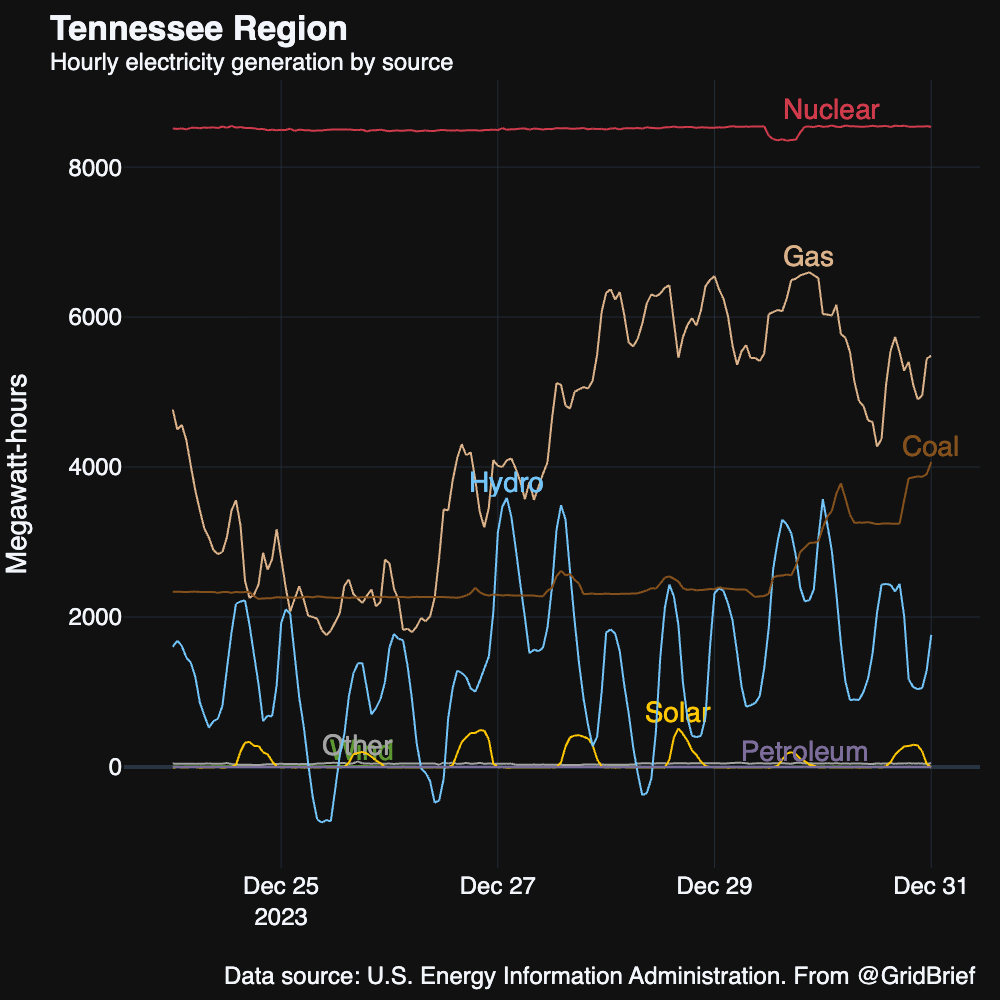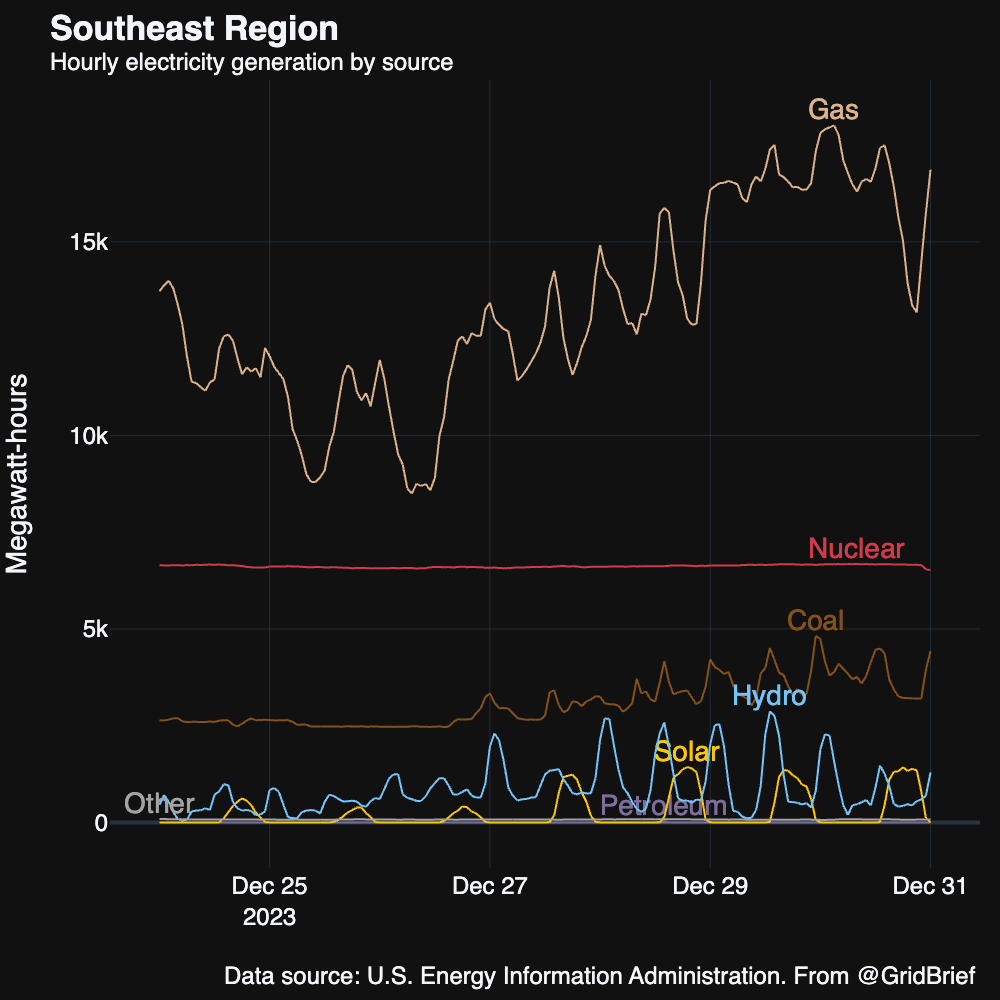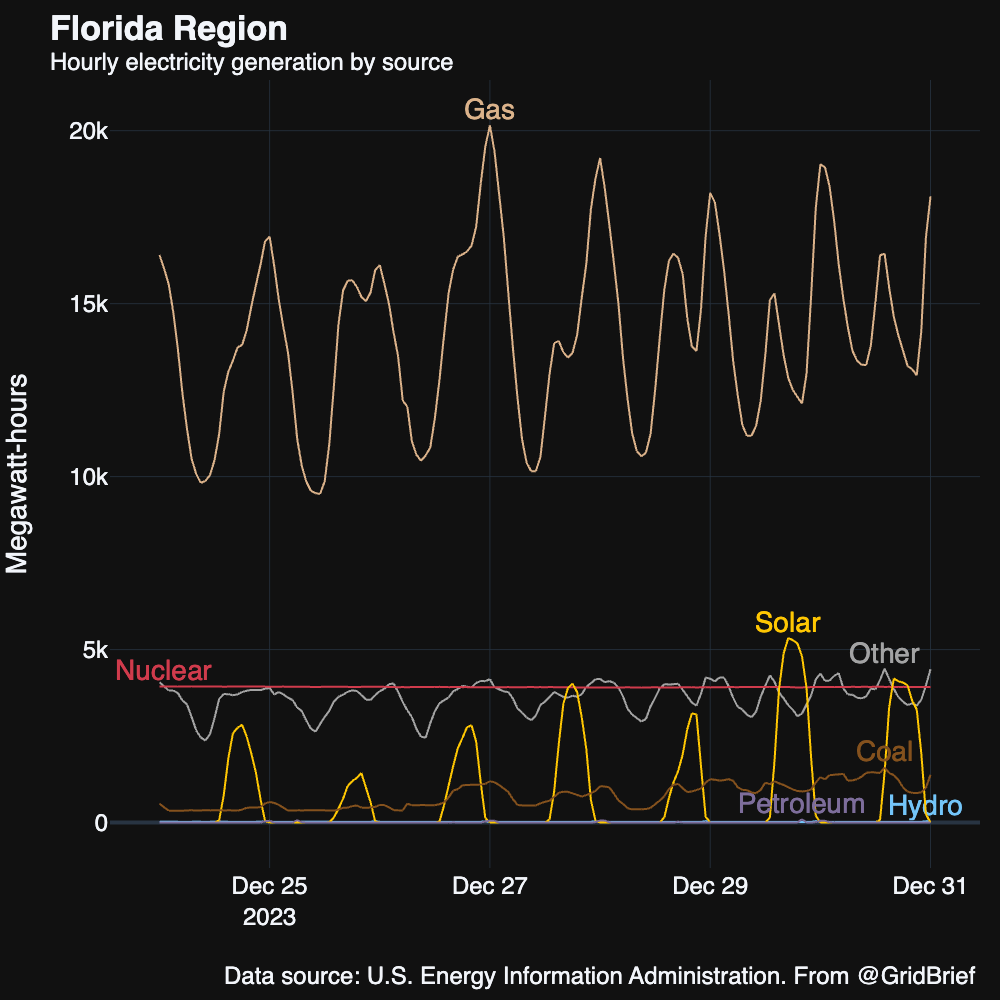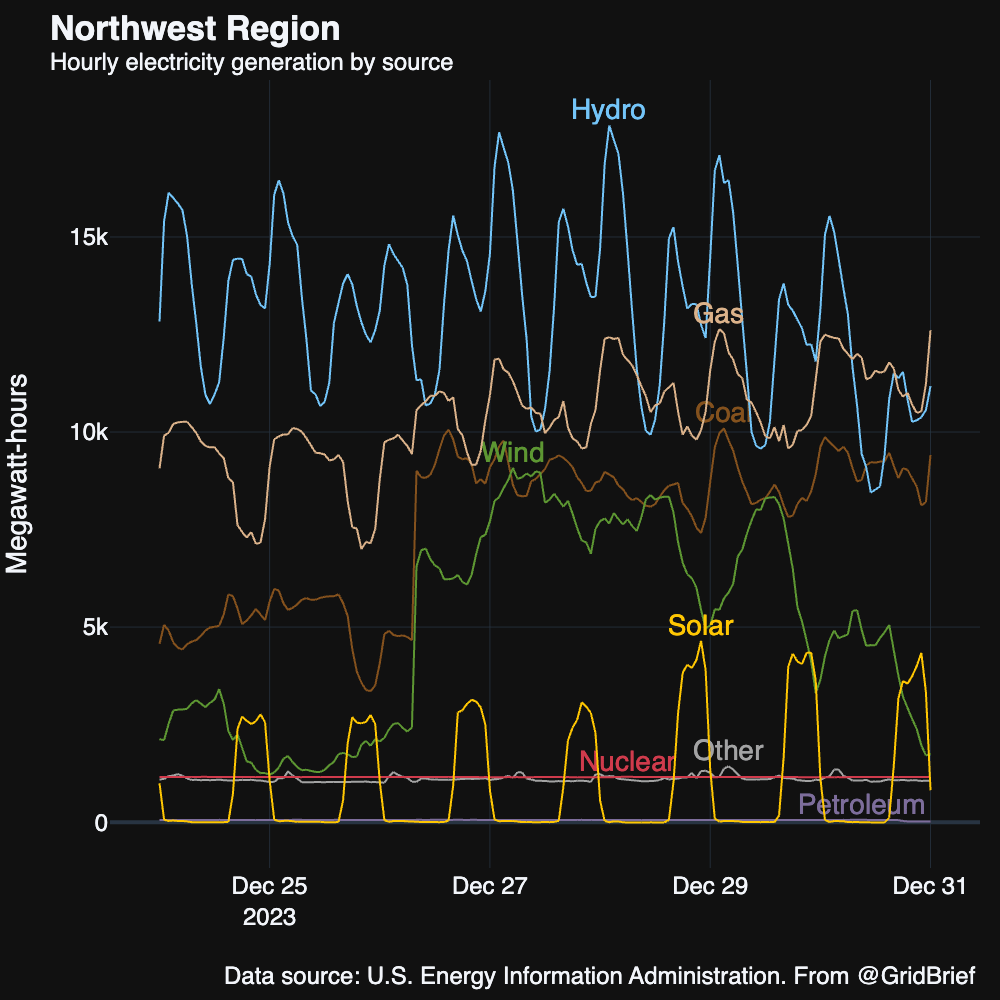Welcome to Grid Brief and Happy New Year! Today we’re looking at power generation in America’s traditional monopoly utility areas with accompanying news items.
Monopoly Area Monday
Here’s a snapshot of generation nation-wide:

Natural gas, nuclear, and coal were the old standbys, though wind had a shining moment the day after Christmas.
And here’s a map to orient you as we move through the regions:

Carolinas

Nuclear, natural gas, and coal kept the Carolinas running, though solar had a happy Christmas when it jumped over the latter two.
Speaking of nuclear, South Carolina’s VC Nuclear Station’s cracked pipes received a reduced warning from the Nuclear Regulatory Commission. The NRC downgraded its assessment of cracks in the plant’s back up emergency fuel line from October’s “yellow” to “white,” according to ABC News.
“While not indicative of immediate risk, this finding underscores the need for continuous vigilance and improvement in the plant’s corrective action process,” NRC Region II Administrator Laura Dudes said in a statement.
TVA

Nuclear remained the top generator in the nation’s largest public power entity, while natural gas, coal, and hydro swapped second and third place throughout the week.
Just before Christmas, the TVA and Huntsville utilities ponied up $100k to train and educate utility lineworkers.
“As electricity demand grows, we need a skilled workforce to provide affordable, reliable and sustainable power,” said Jared Mitchem, Regional Vice President for TVA's South Region. “Partnering with Huntsville Utilities and Calhoun Community College ensures that we can recruit and train the workforce we need as we build the energy system of the future.”
Southeast

Natural gas, nuclear, and coal were the main generators in the Southeast.
Florida

Natural gas, nuclear, and “other” were the top three generators in the Sunshine state, though solar jumped up to the second spot on December 30th.
High natural gas fuel prices pushed up utility bills state-wide in 2023, but 2024 might spell relief for consumers.
“The three major private electric utilities — Florida Power & Light, Duke Energy Florida and Tampa Electric Co. — plan to lower customer bills, with the biggest changes coming at Tampa Electric and Duke,” reports the Orlando Sentinel. “Utility bills are made up of a mixture of costs, such as base rates, environmental costs, storm costs and power-plant fuel costs. With Florida utilities heavily reliant on natural gas to fuel plants, high gas prices in 2022 played a key role in driving up bills in 2023. Gas prices, however, have subsided, resulting in utilities not having to collect as much from customers in 2024 to cover the tab.”
Northwest

Hydro, natural gas, and coal were the stars of the Northwest.
Tribes, rather than government officials, are going to control the $1 billion in salmon recovery funds in the Biden administration’s move to replace hydropower in the Pacific Northwest.
Southwest

The Southwest’s generation graph looks somewhat strange. Nuclear is nowhere until the day after Christmas when it roars sharply upward with natural gas.
New Mexico unveiled $9 million in utility bill assistance for over 40,000 low-income households.
Upgrade to Grid Brief Premium to get extra deep dives into energy issues all over the world.
Conversation Starters
Angola quit OPEC. “Angola has said it is leaving the Organization of the Petroleum Exporting Countries (OPEC) with effect from Jan. 1 2024, after exits from Ecuador in 2020 and Qatar in 2019,” reports Reuters. “Angola, which joined OPEC in 2007, produces about 1.1 million barrels per day, compared with 28 million bpd for the whole group. Angola's departure from OPEC will leave it with 12 members and crude oil production of about 27 million bpd, some 27% of the 102 million bpd world oil market.”
Ecuadorian oil firm declares force majeure. “Ecuador's state-run oil company, Petroecuador, has declared force majeure on three more oil blocks due to protests by the indigenous Kichwa community, just days after doing the same for another block,” reports Oilprice.com. “The three blocks were jointly producing a total of about 142,000 barrels of oil equivalent before production fell to about 122,500 on Monday. The indigenous community has accused the company of breaching agreements, though Petroecudor has said it remains open to dialogue. Petroecudor produced just over 362,000 barrels on Monday.”
The US Navy fired on Houthi rebels. “The U.S. military said Sunday that its forces opened fire on Houthi rebels after they attacked a cargo ship in the Red Sea, killing several of them in an escalation of the maritime conflict linked to the war in Gaza,” reports the LA Times. “In a series of statements, the U.S. Central Command said the crew of the USS Gravely destroyer first shot down two anti-ship ballistic missiles fired at the Singapore-flagged Maersk Hangzhou late Saturday, after the vessel reported getting hit by a missile earlier that evening as it sailed through the southern Red Sea. Four small boats then attacked the same cargo ship with small arms fire early Sunday and rebels tried to board the vessel, the U.S. Navy said.”
Crom’s Blessing

We rely on word of mouth to grow. If you're enjoying this, don't forget to forward Grid Brief to your friends and ask them to subscribe!